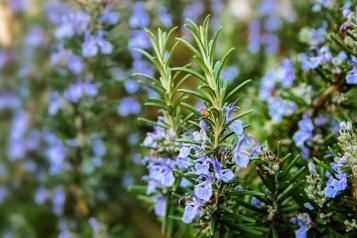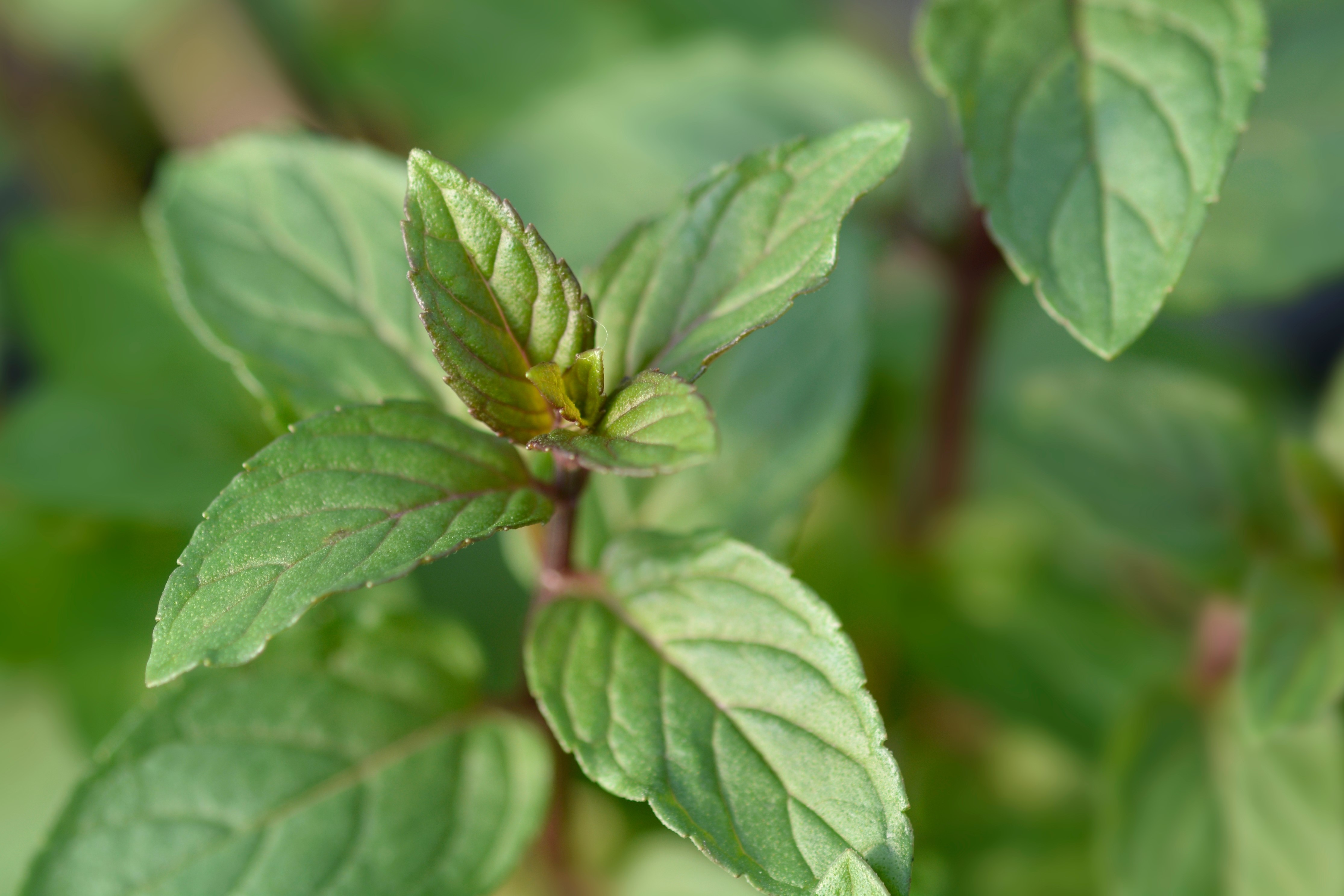Calming chamomile
Chamaemelum nobile, commonly known as chamomile, has daisy-like flowers that are pretty and purposeful because they contain essential oils and antioxidants. These make them popular for use in herbal remedies to help with inflammation, insomnia, as well as hay-fever and muscle spasms.
As well as being useful when harvested, chamomile is a nurse herb to many other plants. This is because it collects potassium, calcium, and sulphur, returning it to the soil when used as a mulch. There are more uses in the garden too, as chamomile attracts hoverflies and ladybugs that feast on aphids, so it’s brilliant planted next to cabbages.
Grow your own chamomile by planting in a warm and sunny spot. In late winter or early spring, sow the seeds in pots, then transplant them once they are large enough to be handled. When the risk of frost has passed, harden them off before planting them out. Alternatively, buy young plants which can be planted any time of year, but spring or autumn is best. Once planted, keep the soil moist to make the most of the flowers and apply a feed like Miracle-Gro Performance Organics All Purpose Concentrated Liquid Plant Food through growing season. However, do bear in mind that there are a few different types of chamomiles which all tolerate slightly different conditions.
Through summer the flowers can be harvested. To make chamomile tea, you’ll only need the flowers, not the stems or leaves. Allow them to dry out by spreading them somewhere warm, then once dried they can be stored. Use one teaspoon of the dried flowers per cup of chamomile tea, adding a bit of honey for extra sweetness.

Helpful herb
Rosemary is a rapid grower and is a sun-lover too, so will appreciate a sunny spot in the herb garden. The mini sword-like leaves are joined together on the main stem, which is beautiful green with silvery tones, for an enchanting appearance. The big bush, with mauve flowers in the summer, can grow over head height so you need to trim it. It’s evergreen and perfect for a container, so is an asset in any size or style garden, even if you just have a window box or balcony garden to grow in. During summer, feeding with a high-potash feed like Levington Tomorite Concentrated Tomato Food will help to keep the plant tough so they can withstand the summer heat.
The scent of rosemary is truly delightful, one of my favourite herbs. Not only does it have a beautiful fragrance but has a taste that complements lamb or beef perfectly. In the kitchen, it can be used in many Mediterranean dishes, from salads and soups to vegetable and meat dishes. This herb is rich in vitamin A, which has antioxidant properties that is essential for vision as well as healthy skin. Similarly to chamomile which is used to make tea, rosemary tea has been long used as a natural remedy with links to lessening headaches and colds.

Garden fresh
Growing mint is a no-brainer. There are many types of mint to try, with apple mint, spearmint, peppermint, even a chocolate one that smells a bit like After Eights.
However, it’s ideal to grow this herb in a container because it spreads vigorously, so you’ll need to keep it under control. Although, if you want to plant it within a border, sink down some plastic edging to surround it to prevent it from taking over.
Buying young mint plants from a garden centre is the best way to get started, this way you can also choose your favourite scent by shopping with your nose. Once you’ve chosen, plant in a sunny or partially shaded spot and water thoroughly to keep the compost moist until the plant has settled in. In summer, an occasional feed of Levington Seaweed Tonic will help to improve flavour too.
Hardy and low maintenance, mint does die back every winter, but will offer a lot through the rest of the year. Even though it is deciduous, the harvests from summer can be preserved by chopping the leaves finely and putting them into an ice-cube tray with water then freeze them.
Although mint is usually used in small quantities due to its strong flavour, it is a good source of vitamins and antioxidants. Like rosemary, mint is a good source of vitamin A, as well as having links to improving symptoms of irritable bowel syndrome and digestive problems.
Growing herbs is especially rewarding because the care and nurture given results in delicious and nutritious herbs that can be used in food and drinks to add flavour and goodness to your life. There are so many benefits of growing a herb garden, and the beauty of it is, they can be grown in any garden size.
















